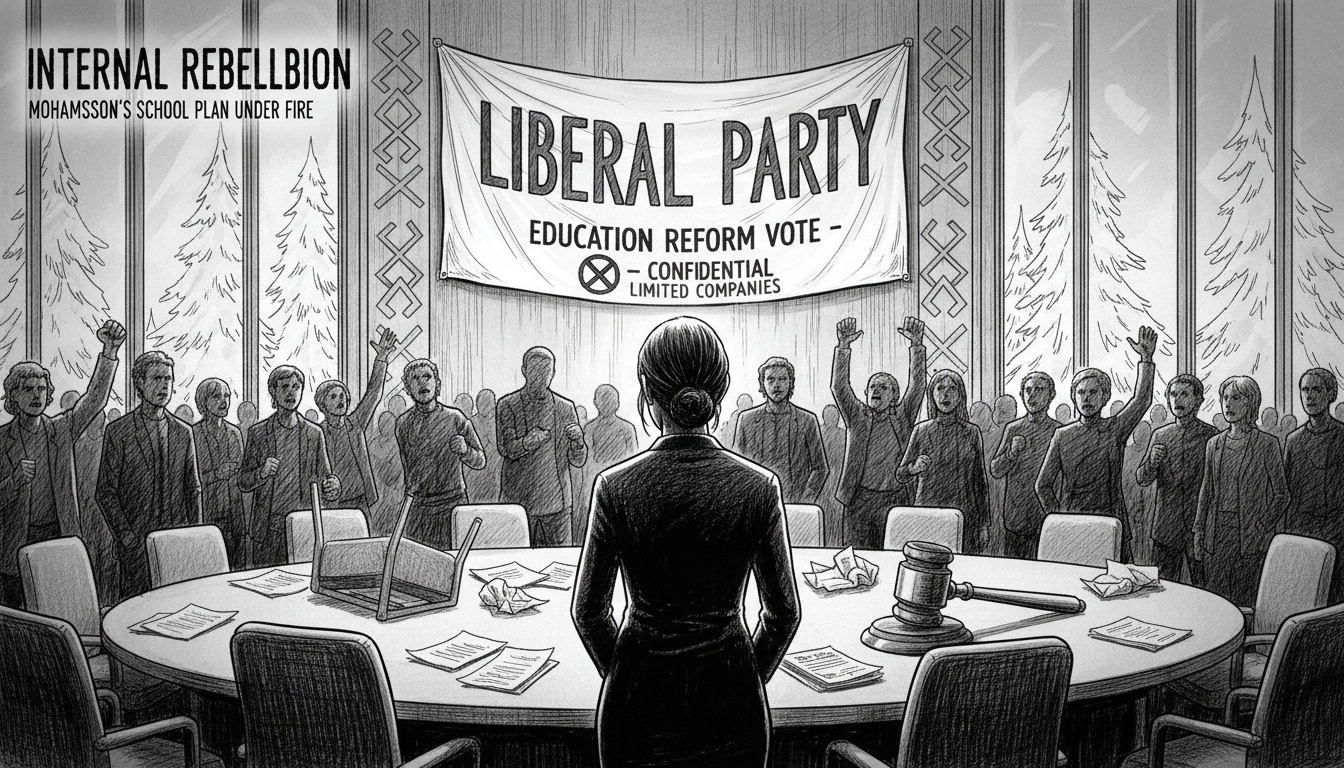Liberal Party leader Simona Mohamsson confronts substantial internal opposition to her flagship education policy. The proposal would ban limited companies from operating independent schools in Sweden. Party members will decide the matter at their national conference next week.
Mohamsson maintains support from the unified party board. Yet widespread criticism emerged during recent regional member meetings in Stockholm, Gothenburg and Skåne. One insider described the board's position as facing massive resistance.
The Liberals conducted a multi-year process developing this proposal. Internal polling showed voters support limiting profits in education. Still, Mohamsson's arguments reportedly angered many within the party.
Susanne Bromölla, chair of Liberals in Bromölla, announced she will leave the party early next year. She claims the party shifted too far leftward. Bromölla questions credibility when key issues include blocking the Sweden Democrats, limiting business profits, school uniforms, and choking during sex.
Annika Westh, regional council member in Västra Götaland, calls the proposal socialist. She states this doesn't belong in a liberal party. Westh says everyone she speaks with finds the situation strange and hopes it fails.
Multiple sources within the Liberals confirm substantial opposition exists. One source claims Mohamsson describes limited companies as evil and greedy. The same person feels convinced the proposal won't pass at the national conference because resistance is too strong.
Several party members describe potential major prestige loss for Mohamsson if her proposal fails. One person notes it would prove extremely embarrassing given how strongly she advocated this position.
This conflict reflects broader tensions within Swedish politics about education privatization. Sweden's independent school system, established in the 1990s, remains controversial decades later. The system allows private companies to operate publicly-funded schools, creating ongoing debates about profit-taking in education.
International observers watch closely as Sweden's education model influenced similar reforms globally. The Liberal Party's internal struggle represents another chapter in this enduring policy debate. The outcome could signal shifting attitudes toward market solutions in Swedish public services.
The situation presents a critical test for Mohamsson's leadership. New party leaders often face early challenges establishing authority. A defeat on her signature policy so soon after taking leadership could weaken her position substantially.
Sweden's coalition government dynamics add complexity. The Liberals participate in the governing coalition but face pressure from both left and right on education policy. Their internal decision may influence broader government policy directions.
Education policy consistently ranks among Swedish voters' top concerns. The Liberal Party's internal debate reflects broader societal discussions about balancing quality education, equal access, and private sector involvement.

